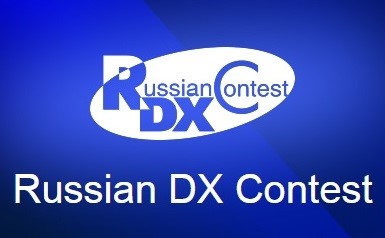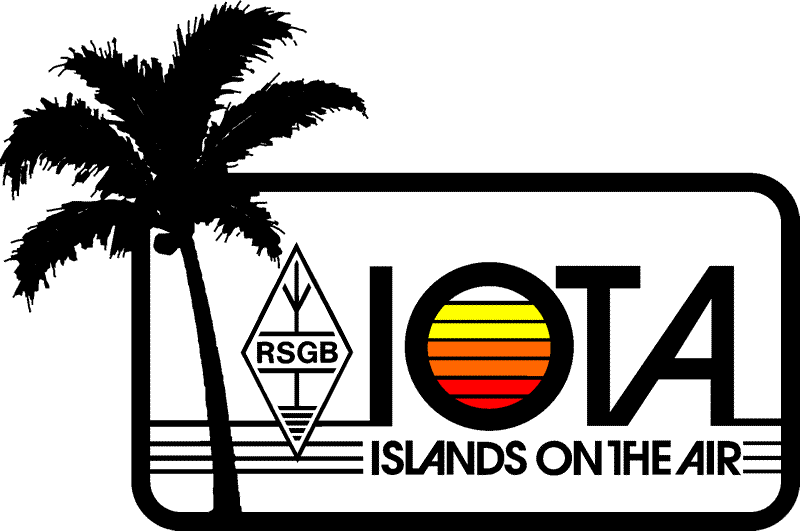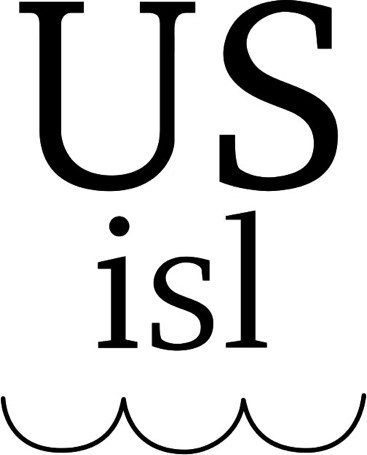When it comes to Ham radio, few activities offer a better bang for your buck than contesting. Radiosport offers a way to better your on-air and station-building skills, improve your efficiency in message-handling, and prepare you for dealing with unexpected station difficulties in a real-life situation.
For the more casual participants, contesting offers you opportunities to take in a lot of Ham radio in a relatively short time, make great strides in on-air awards such as Worked All States or DXCC, and in some instances, get a taste of what it’s like to be the rare “DX.”
Even the most casual Ham radio operator has heard of the major competitive events such as the CQ Worldwide DX Contest, ARRL DX Contest, the ARRL RTTY Roundup, and the IARU HF Championships. State QSO parties are great events to hone your skills or even operate from a rare county and be the DX. Excellent QRP events such as those from QRP-ARCI and the NJQRP Club’s Skeeter Hunt occur regularly from numerous QRP clubs. But every month there are some lesser-known Ham radio contests that are worthy of more recognition than they get. Let’s take a look at some of these events that deserve to be on your calendar.
January: We start off the calendar year with two relatively big events: the ARRL RTTY Roundup and the ARRL January VHF Contest. But January is also host to the North American QSO Party, a 12-hour event where small stations can do quite well. The exchange is simple: your first name and your state. Stations are also limited to 100 watts, and single-op stations can only operate 10 of the 12 hours, meaning you still have some weekend left to spend with the family or run errands.
Another one to check out is the DARC 10 Meter Contest sponsored by the Deutscher Amateur Radio Club, the national Ham radio association of Germany. Some sporadic-E propagation can occur on 10 meters around the winter solstice, making contacts with Germany from the U.S. a possibility. For stations outside of Germany, the object is to work as many DARC districts, called DOKs, as possible. For more info on DOKs, visit the DARC website.
February: CW contesters know February as the month for the ARRL DX CW contest, one of the major events of the contest season. It’s also the month for the RTTY version of the North American QSO Party and the CQ Worldwide 160 Meter SSB Contest. But it’s also the month for the Freeze Your Butt Off (FYBO) Winter QRP Sprint, sponsored by the Arizona ScQRPions QRP Club. It’s 10 hours of winter QRP fun; operate from home or outdoors, get big bonus points for setting up outside, and the temperature at your operating site is part of the on-air exchange. More info is on the ScQRPions website.
March: As winter shifts to spring, two major events grace the calendar: the ARRL DX SSB Contest and the CQ Worldwide WPX SSB Contest. But there’s also a hidden gem: the Russian DX Contest. It’s open to all Hams worldwide, and the multipliers are not only DXCC entities but Russian oblasts, similar to a state or a province. There are 46 oblasts to work across Russia. Try this great DX contest for a change of pace. Rules can be found on the Russian DX Contest website.

The Russian DX Contest in March gives you the chance to work Russian oblasts, which are similar to states or provinces.
April: Several “second tier” big events appear on the calendar, such as the Japan International DX Contest, the CQMM DX Contest administered out of Brazil, and the YU DX Contest. There are even some high-profile state QSO parties in Georgia, Michigan and Florida, and they all bring in a lot of activity around the country. But one to focus on, especially for newer licensees, is the ARRL Rookie Roundup (SSB). This six-hour event is specifically targeted to those who have been licensed for three years or less. Rookies can work anybody anywhere, and non-rookies can work only rookies. It’s a great environment to get your feet wet with little pressure if you’re new and never tried contesting before. The Rookie Roundup is held three times per year: SSB in April, RTTY in August, and CW in December. Learn more at the ARRL Rookie Roundup page.
May: The traditional contest season comes to a close in May with the running of the CQ Worldwide WPX CW Contest. However, there are lots of other events to consider. The first weekend in May has almost a third of the country participating in a state QSO party: the New England QSO Party, the 7-land QSO Party, and the Indiana QSO Party are all on at the same time! That’s a lot of states and counties to go after in pursuit of those awards like Worked All States and working all 3,077 counties in the U.S.
Another fun event to check out is the His Majesty The King Of Spain CW Contest. As the name implies, this event focuses on Spain, and the object is to work as many different Spanish provinces as possible. There are also special callsigns active for the event that are worth extra bonus points. This long-running contest is worthy of your attention; give it a go! Rules can be found here.
June: Summertime…and the Hamming is easy. Everybody knows about the biggest non-contest that ever was, ARRL Field Day. And summertime also brings sporadic-E propagation to the VHF bands, which is why ARRL features the June VHF Contest and everybody flocks to 6 meters to work as many grid squares as they can. But there is also the wonderful Japan Amateur Radio League’s All Asian DX CW Contest, where stations outside of the Asian continent try and work as many different Asian prefixes as possible. This event has been going on for over 60 years and will only get better in the coming years as we climb out of the solar minimum and into better conditions globally. Rules are on the JARL website.

The All Asian DX Contest focuses on working stations throughout the Asian continent. CW is in June, SSB in September.
July: Most radiosport afficionados know July is for the IARU HF Championships, with the World Radiosport Team Championships held during this contest every four years. Some of the other larger events in this relatively quiet month include the CQ World Wide VHF Contest, the Canada Day Contest held on July 1, and the second running of the North American QSO Party (RTTY). But one to get involved with is the Radio Society of Great Britain’s Islands On The Air (IOTA) contest. This event promotes operations from islands and island groups all around the world. A lot of DXpeditions to rare and semi-rare island groups occur during this event, and one of the great by-products of this contest is looking up, geographically, the island groups you contact. Don’t let this one slip by; it’s a real treat. Complete rules are on the RSGB website.

The Radio Society of Great Britain sponsors the Islands on the Air (IOTA) contest the last weekend of July. Lots of DXpeditions to islands worldwide occur for this event.
August: As we enter the dog days of summer in the northern hemisphere, we begin to notice the bands starting to quiet down a bit as we inch toward fall and winter. Major contest season is just around the corner and the calendar reflects it, with some larger events like the Worked All Europe (WAE) CW Contest, the second running of the CW and SSB versions of the North American QSO Party, and the Worldwide Digi DX Contest for all you FT4/FT8 operators.
August also has the W/VE Islands QSO Party, sponsored by U.S. Islands. This event focuses on working or operating from islands in lakes, rivers, streams, and along the coast of the U.S. and Canada. You don’t even need a boat; many of the qualified islands can be driven to. This is a fun event for stations to operate portable and get a mini-DXpedition in without spending a lot of money. Rules can be found on the US Islands website.

US Islands sponsors the W/VE Islands QSO Party every August. Take your rig and find an island near you!
September: Contest season returns in full force in September, with the running of the first truly major event of the season: the CQ Worldwide RTTY DX Contest. There’s also the SSB version of the All Asian DX Contest, the Worked All Europe SSB Contest, and the Russian RTTY Worldwide Contest to consider. VHF fans can get in on the ARRL September VHF Contest, where tropospheric enhancement can make long-distance contacts on 2 meters and up more likely. Dig deeper and you’ll find the All Africa DX Contest. This 24-hour, all-mode event is designed to stimulate activity on the African continent. There’s even a Rookie category for the newly-licensed. This event provides an excellent opportunity to work some choice DX. Rules can be found in the South African Radio League’s Contest Manual.
October: October features the granddaddy of them all: the CQ Worldwide SSB Contest. This the largest contest on the calendar and one of the largest competitive events on the planet, with tens of thousands of participants, from the casual to the seriously competitive. October has quality events every weekend. The Oceania DX Contest lets you work countries throughout the South Pacific, and the California QSO Party is one of the biggest state QSO parties of the year. The JARTS Worldwide RTTY Contest should not be ignored either. But for a bit of merriment before the weather turns too cold, consider the Peanut Power QRP Sprint sponsored by the North Georgia QRP Club. It’s two hours of CW and SSB QRP fun, with stations operating from home or out in the field. It’s the one time when being a Goober is a good thing! Rules are found on the Georgia QRP Club website.
November: Major events occupy every weekend in November. The ARRL CW Sweepstakes is the first weekend, Worked All Europe RTTY Contest the second, ARRL SSB Sweepstakes the third, and the CQ Worldwide CW Contest on the fourth. Any of these events will keep you busy for hours. November also features a truly unique event: the Classic Exchange, which gives you bonus points for using vintage and antique Ham radio gear. The great radios of yesteryear have their day in the sun…or on the air, if you will. This is a casual event with fun at a maximum. Dust off your older gear and get involved! Rules are at the Classic Exchange website.
December: Some may find little time for radio during the holiday season, while others find it a respite from the hustle and bustle. The ARRL 160 Meter and 10 Meter Contests are the first and second weekends of the month, and the OK RTTY Contest is on the third. For something truly unique, try the Stew Perry Topband Challenge. Named in honor of one of the gentlemen topband operators, Stew Perry W1BB [sk], this CW event features distance-based scoring. It’s a fun contest to try if you’ve never seriously worked 160 meters before. Check out the ruleshere.
These are only highlights of an incredibly diverse contest calendar. There are many great events all year long, no matter what your interest in Ham radio may be. Take the time to research other events on the WA7BNM Contest Calendar at contestcalendar.com.

